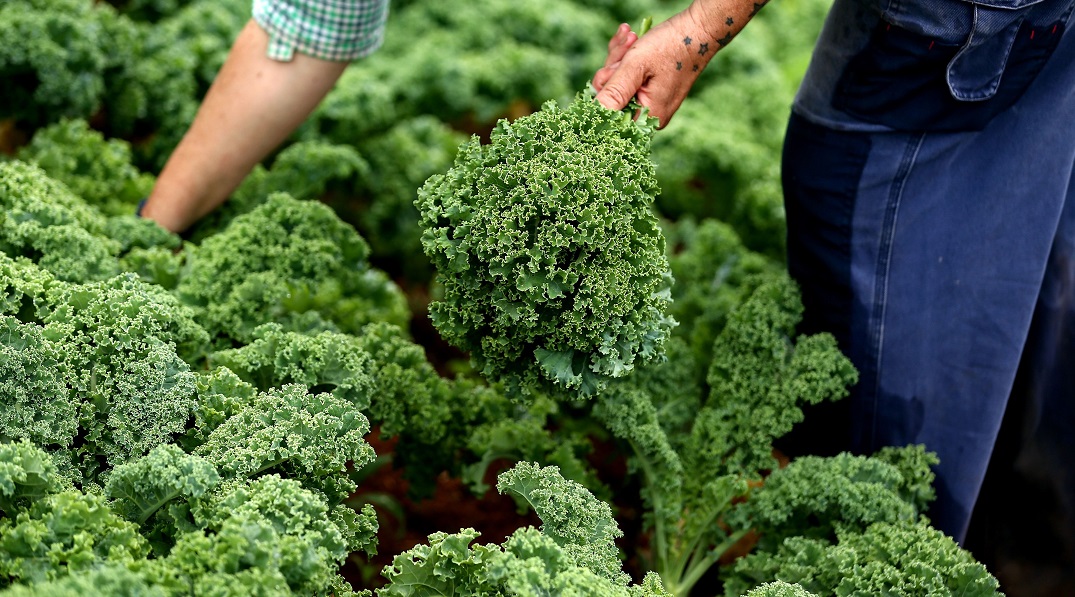
When it comes to nutrient-rich foods, kale has rightfully earned its reputation as a superfood. Belonging to the cruciferous vegetable family alongside broccoli, cabbage, and Brussels sprouts, kale is packed with vitamins, minerals, antioxidants, and fiber. It’s one of the healthiest foods you can put on your plate.
From boosting immunity to supporting heart health, kale is more than just a leafy green—it’s a nutritional powerhouse. This article will explore the benefits of kale, its nutritional profile, how to enjoy it, and why it should be a regular part of your diet.
What is Kale?
Kale (Brassica oleracea var. sabellica) is a leafy green vegetable that has been cultivated for thousands of years. Originating from the Mediterranean region, kale has been a staple in many cuisines because of its hardiness and ability to grow in cool climates.
It comes in different varieties such as curly kale, lacinato kale (also known as Tuscan or dinosaur kale), and red Russian kale. Each variety offers slightly different flavors and textures, but all share the same remarkable health benefits.
Nutritional Profile of Kale
Kale is incredibly nutrient-dense while being low in calories. A single cup (67 grams) of raw kale provides:
-
Calories: 33
-
Protein: 3 grams
-
Carbohydrates: 6 grams
-
Fiber: 2 grams
-
Vitamin A: Over 200% of the daily value (DV)
-
Vitamin K: Nearly 700% of the DV
-
Vitamin C: 134% of the DV
-
Calcium: 9% of the DV
-
Potassium: 9% of the DV
-
Iron: 6% of the DV
Kale also contains antioxidants such as quercetin and kaempferol, omega-3 fatty acids (in the form of alpha-linolenic acid), and compounds like sulforaphane that support detoxification.
Health Benefits of Kale
1. Rich in Antioxidants
Kale is loaded with powerful antioxidants that fight oxidative stress in the body. This helps reduce inflammation and lowers the risk of chronic diseases such as cancer, diabetes, and heart disease.
2. Supports Heart Health
The high levels of potassium, fiber, and antioxidants in kale promote cardiovascular wellness. Potassium helps regulate blood pressure, while fiber reduces cholesterol levels, improving overall heart function.
3. Boosts Immunity
With an abundance of vitamin C and vitamin A, kale strengthens the immune system, helping the body fight infections and supporting healthy skin and eyes.
4. Strengthens Bones
Kale is one of the best plant-based sources of calcium and vitamin K—two nutrients essential for strong bones and preventing osteoporosis.
5. Detoxification Support
Compounds such as glucosinolates and sulforaphane in kale assist the body’s natural detox systems, promoting liver function and flushing out harmful toxins.
6. Aids Weight Management
Low in calories but high in water and fiber, kale makes you feel full without adding extra calories, making it a perfect food for weight loss and weight management.
7. Supports Eye Health
Kale is rich in lutein and zeaxanthin, carotenoids that protect the eyes from harmful UV rays and reduce the risk of age-related macular degeneration and cataracts.
8. Helps Fight Inflammation
Chronic inflammation is linked to many health problems. Kale’s omega-3 fatty acids and antioxidants help reduce inflammation naturally.
How to Add Kale to Your Diet
Kale is versatile and can be enjoyed in many delicious ways:
-
Salads: Massage raw kale with olive oil and lemon to soften its texture.
-
Smoothies: Blend kale with fruits like bananas, pineapples, or mangoes for a nutrient-packed green smoothie.
-
Soups & Stews: Add kale towards the end of cooking for extra nutrition.
-
Stir-fries: Cook kale with garlic and olive oil for a quick side dish.
-
Chips: Bake kale leaves with a sprinkle of sea salt for a crunchy, healthy snack.
-
Juices: Combine kale with cucumber, apple, and ginger for a refreshing detox juice.
Potential Considerations
-
Thyroid Function: Like other cruciferous vegetables, kale contains goitrogens that may interfere with thyroid function if consumed excessively in raw form. Cooking kale reduces these compounds.
-
Vitamin K Content: Because kale is extremely rich in vitamin K, people taking blood-thinning medications (like warfarin) should consult their doctor before making significant dietary changes.
Best Time to Eat Kale
Kale can be eaten any time of the day. Adding it to breakfast smoothies boosts your morning energy, while kale-based dinners provide filling fiber and nutrients without weighing you down.
Why Kale is Called a Superfood
The term superfood is often overused, but in the case of kale, it’s well deserved. Few foods combine such a wide array of nutrients in such a small number of calories. Regularly including kale in your meals supports longevity, disease prevention, and overall vitality.

You must be logged in to post a comment.